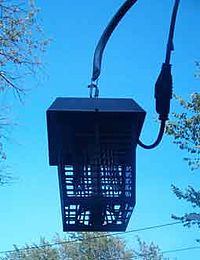Two stories related to one of my favorite topics appeared over the weekend. The first comes out of Michigan, where the state legislature passed a law to ban “tax zappers.” The only zappers I ever heard of were these:

That’s definitely not what Michigan banned. No, these zappers are used to skim cash from registers in cash-basis businesses so that sales could be under-reported. Who were the customers in Michigan? According to this story, Detroit area strip clubs. It appears that sales of the “Journal Sales Remover” may have been better than thought of. I wrote about this product in 2010; it wasn’t a bright idea then and it’s not one today.
Of course, the new Michigan law is overkill. Anyone violating the new law is also violating various sales tax laws, committing tax fraud against both the IRS and Michigan, and likely violating local ordinances, too.
So from Michigan lets head west to Minneapolis. Last Friday night Envy was raided. That’s Envy, the nightclub. Minnesota State Department of Revenue officers raided the club; the DOR alleges that the owners of the club, James and Susan Beamon, may be skimming cash, grossly underreporting withholding taxes, and not paying all their sales tax. This news story notes that per the search warrant the owners of the club reported negligible income for 2009 and haven’t filed 2010 or 2011 returns. And conspicuous consumption may have gotten the owners in trouble:
“Normally, persons with the income levels reported by the Beamons could not afford a high-priced Cadillac,” the search warrant said.
As a reminder, income is taxable whether you make it in cash, checks, or credit cards. That said, the idea that businesses that deal in large amount of cash would be tempted to skim is normal. That’s why cash businesses such as strip clubs and nightclubs are far more likely to be audited than, say, a jewelry store.